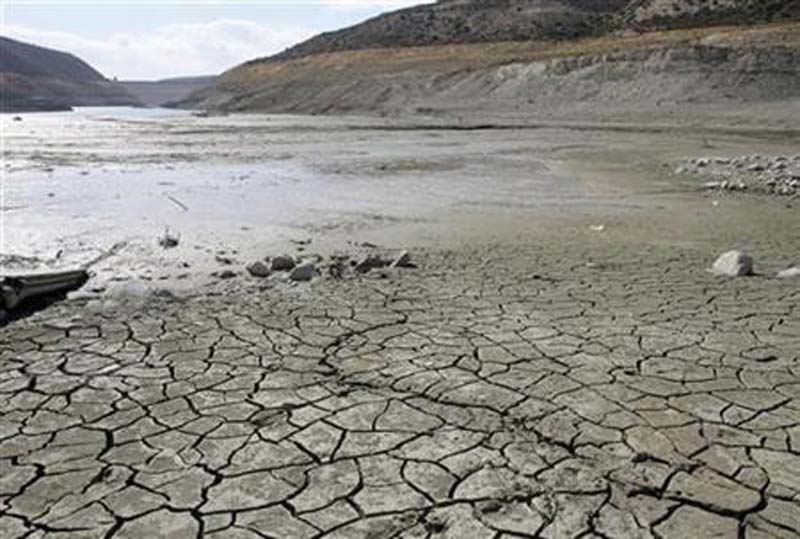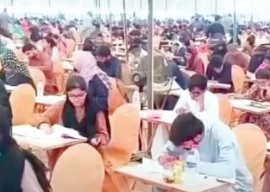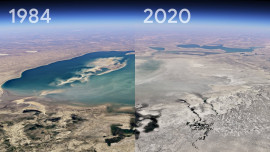
The Sindh Environment Protection Agency (SEPA) finalised the draft prepared for climate change policy on Tuesday.
The draft will soon be presented in Sindh Cabinet for further deliberations and approvals.
The policy draft evaluates factors such as the effects of global warming and climate change in Sindh during the next three decades and consequent damages, potentially be borne by the province's society, human population and economy.
Apart from this, it also includes the suggestions for what efforts that can be made in order to deal with the climate change.
SEPA has emphasised on urban planning and limiting rural to urban migration if a hike in unemployment, diseases and poverty has to be avoided.
Its policy draft declares water shortage as a major challenge in the future as the province's water resources are shrinking and the requirement is increasing.
It suggests that Sindh faces a major climate change threats and challenges in the near future since the pattern of rainfall in the province is changing rapidly.
According to the draft, Sindh may witness unexpected rains in the autumn season in the coming years, posing biggest threat to the agriculture sector on account of unknown amount and pattern of these showers.
Read More: ‘World needs to do more on climate crisis’
Cultivation of wheat will be the most affected during the next few decades, which is likely to cause famine and drought in the province, reads the report.
It states that a greater risk of floods also looms as the water level in the upper stream of River Indus is expected to increase owing to the climate change.
Moreover, the draft also estimates the temperatures and atmospheric conditions in different cities of Sindh in the 2030 decade and following years.
As per the draft, the frequency and duration of heat waves in Karachi and other cities are likely to increase gradually which would also harm the human resources as well as the agriculture.
Also, the unplanned constructions in the cities will take the level of air pollution up and natural disasters may occur in effect of imminent oceanic conditions.
The draft stresses over special attention to be given to urban foresting to tackle with the effects of climate emergency and setting up a separate institution to make long term efforts for dealing exclusively with social, economic and regional challenges, as well as to ensure implementation of the climate change policy.
Moreover, it recommends making amendments in Sindh Local Government Act, based on certain authorities designated to the local bodies in regard with the environment and climate change.
Published in The Express Tribune, July 14th, 2021.



1725612926-0/Tribune-Pic-(8)1725612926-0-165x106.webp)



1732176172-0/Untitled-design-(8)1732176172-0-270x192.webp)
1732175528-2/Untitled-design-(5)1732175528-2-270x192.webp)












COMMENTS
Comments are moderated and generally will be posted if they are on-topic and not abusive.
For more information, please see our Comments FAQ